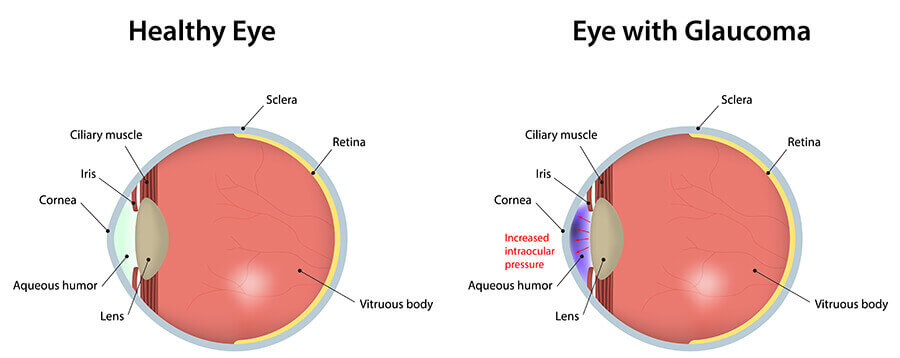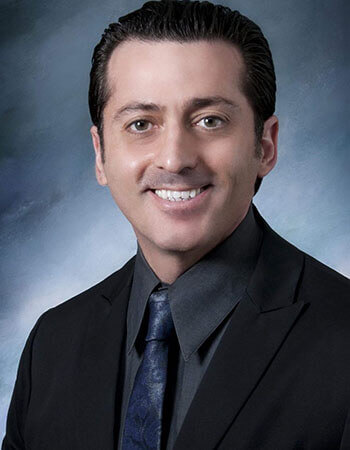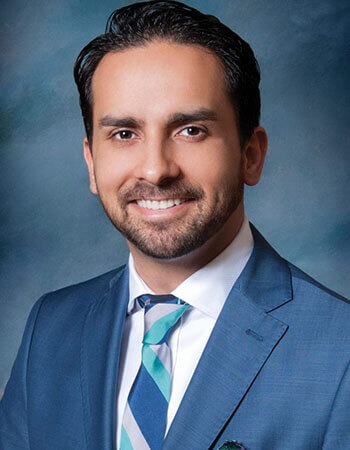Glaucoma is a serious eye condition that can cause damage to the optic nerve in the eye. It occurs when the fluid pressure in the eye increases to an above normal level. If left untreated, glaucoma can cause irreversible loss of vision or even blindness in more severe cases. Typically, glaucoma does not develop until later in life, but it should be treated at the first onset of symptoms. At Nevada Eye Physicians, our experienced Nevada eye care doctors can evaluate a patient’s medical history and current symptoms to diagnose glaucoma, and then create an effective plan of action to treat it and stop it from progressing.

What Causes Glaucoma?
The eye circulates a fluid known as aqueous humor. When the mesh-like channel that helps the circulation is blocked, the liquid starts to mass, and pressure, known as intraocular pressure, begins to mount in the eye. For many patients, this pressure is painful and when intraocular pressure rises, it can damage the optic nerve. If the blockage is not cleared and the damage to the nerve is not treated, loss of vision is possible. Scientists do not know what causes the blockage, but genetics are believed to be a factor in most cases. Other conditions, such as diabetes, blocked blood vessels, inflammatory eye conditions, a history of anemia, nearsightedness, or previous eye injuries can also be factors that can cause glaucoma.
Symptoms of Glaucoma
Primary open-angle glaucoma (POAG) and angle-closure glaucoma (ACG) are the two common types of glaucoma. About 90% percent of all glaucoma sufferers, or about four million Americans, suffer from POAG. Symptoms of POAG develop slowly, so early detection is possible. Many sufferers live with this type of glaucoma for long periods of time before the condition becomes debilitating. ACG is caused by hindered drainage and the symptoms are more easily noticeable. ACG develops faster than POAG and requires immediate attention. Common symptoms of glaucoma include:
- Blurred vision
- Rainbow colored circles or halos around bright lights
- Severe eye and head pain
- Redness in the eye
- Nausea or vomiting
- Sudden loss of vision
Glaucoma Treatment
The treatment of glaucoma may include medication, surgery, or laser surgery. Eye drops or pills alone can usually control glaucoma, although they cannot cure it. Some drugs are designed to reduce pressure by slowing the flow of fluid into the eye, while others help to improve fluid drainage. Surgery to help fluid escape from the eye, and laser surgery are now often used for the same purpose. In laser surgery for glaucoma, a laser beam of light is focused on the part of the anterior chamber where the fluid leaves the eye. This results in a series of small changes, making it easier for fluid to exit.
What to Expect
Following a glaucoma treatment, patients will be given specific aftercare instructions to help them heal properly. Additional treatments for glaucoma may be needed after an initial laser surgery since the effect of laser surgery may wear off over time. It is important that patients continue to attend regular eye exams and follow-up appointments at Nevada Eye Physicians so that our physicians can monitor changes in their vision.











